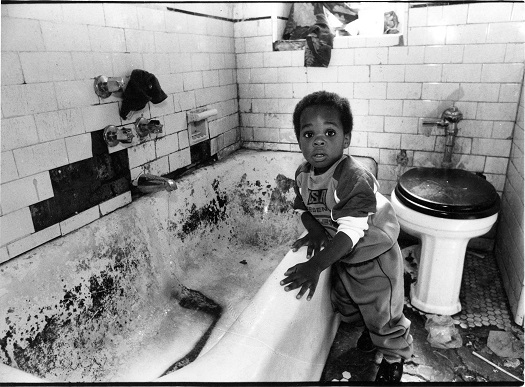
Last night, I had a disquieting and somewhat absurd realization that most people think it’s fine for some people to be rich and other people to be poor. I was struck anew by how difficult I actually find that to believe.
I’m a debater at heart and can defend any proposition if I really need to for the sake of argument. And I know all the arguments and have been through them with people. I’ve been called naive and I’ve dealt with incentive arguments until the cows come home. I’m not sure I really want this post to be about that. Because I think, sometimes, we get lost in the analytical and it takes us away from the profound wrongness of the assumptions so often underlying our society.
It hit me when Alex was talking about a cruise she went on in childhood during a particular time in her upbringing when her family had more access than other times. And I just thought “gee, not everyone gets to go on a cruise when they’re young.” And it seemed obviously, fundamentally unfair. Not necessarily because cruises are the yardstick by which we ought measure a life, but because it’s just one of those things, like getting to go to Disneyland or having enough to eat at home or not being beaten, that is extremely unequally distributed among children. And even you hard-core right-wingers out there will have a hard time arguing that children truly deserve the fate they are born into. That the children of tycoons deserve hundreds of times the upbringing that the children of the homeless do, just for winning the lottery of birth or sharing genetic material with the already successful.
I’m not really trying to elicit an analytical reaction here, because I think that it gets in the way in this instance. Which brings up an interesting paradox, because the longer this post gets, the more our analytical brain takes over and starts opposing the initial thesis and coming up with justifications. Maybe I should just end it now and leave you with the image of a refugee fleeing their home in contrast to an heir lounging by the pool. But somehow even refugees miss the point, because as hard as their lives are, no one builds refugees into the plan. Pretty much everyone acknowledges that we should help refugees and try to prevent their need to flee. But it seems not so with poor kids. We’ve deliberately designed our society to generate poor kids.
It’s very popular these days to say “no excuses!” and to trot out examples of the few poor kids who overcome their hardships and make it to the top of the food chain as a demonstration that anyone can overcome any circumstance. But it’s rarer to ask why we have a food chain at all when designing a society. Animals have a food chain, but they lack flush toilets and libraries and the ability, perhaps, to ponder their place in the cosmos and to try to alter it profoundly. Aspiring to a system of incentives based on animal behavior seems too close to being able to justify slavery or endless war or eating one’s fellow person, literally or figuratively, if nature appears to call for it.
Which I think gets to the critique I most often am asked to wrestle with, which is just how radical or “out there” my arguments sound to the average person. The naturalistic fallacy, that what is innately is what ought to be, is still the predominant justification for war, torture, poverty, vast incarceration, and all the other ills plaguing our species. It’s actually a defter and more advanced rendition of the naturalistic fallacy, which is that what is is awfully close to what must be. It actually tends to leave “ought” out of the equation altogether. This is where I get into gradualism vs. radicalism debates with people, because the underlying assumption of most folks seems to be that radicalism is infeasible, so gradualism is just the best we can hope to do.
I find this unsettling because the only things keeping gradualism afloat are the boundaries of these underlying assumptions in the first place. It’s very circular. If one believes that we cannot quickly overhaul our systems to ditch things that reward abhorrent behavior because things will always be that way, then we cement the very mentality that makes it so. People have actually made this argument to fight the abolition of slavery, the equalization of rights for women and minority races, and gay marriage. None of which were achieved by gradualism and all of which represent sea-changes in the order of society for those who were oldest when they were enacted. And yet no one standing in 2015 can really comprehend the depravity of 1850s America and its treatment of all these oppressed groups or could imagine traveling there and putting up with it.
So why is contemplating that same level of change in the next century or so so difficult?
There is a certain hubris to being in the present. We assume that we are the terminal point in human understanding and achievement because we feel so much better than all those who came before us. We revel in the progress we’ve made since 1850, or 1550, and assume that we must be reaching a vanishing point of accomplishment. Because we’ve learned about radical change in history books, we assume those are the only radical changes that were necessary. And, more damningly, because they already happened, those changes feel inevitable. Because they happened, we lose sight of how radical and scary those changes were at the time and we assume they would have always conspired to take place. We feel pride in our institutions, our upbringing, our whereabouts, because this is a natural human bias. And everything in our society inculcates and reinforces this pride, not least of which is the endless stream of politicians telling us that contemporary America is the best that ever has been, that ever will be.
But some people still get to live their whole lives rich and others live their whole lives poor. Some people will suffer and struggle and face every possible obstacle, while others have advantages at every level of access and freedom. And all of this simply because of the design of our society, because we have chosen to structure the rules this way. How is this possibly a thing?
If you’re arguing against me right now, with something about natural order or the need for incentives, or the way things have been done or life being cold and cruel and unfair, that’s fine. But ask yourself if the same argument(s) could be used to justify slavery in 1850. Ask yourself if the same argument(s) could be used to justify feudalism, or divine-right monarchy, or the practice of pillaging and enslaving a conquered society. Ask yourself if the underlying assumptions you apply to 2015 were applied to generate imperialism. Because I have a funny feeling you will have a very hard time indeed making an argument that doesn’t apply to those past situations. And I bet you find those past states of being to be unthinkably abhorrent.
The only thing keeping us from a world of fairness, equality, and reasonability is ourselves. We imprison our own futures with the walls of “possibility”. We rule out what is morally necessary with the presumption of what is physically doable, not realizing that it is only those assumptive limits that set the parameters of what we can do. If we all decided tomorrow that being poor was simply an unacceptable burden to place on a child, we could implement the steps in society to make it so.
We have made this radical change time and again on so many other policies that seemed like they’d long been obvious as soon as they were finally implemented. Think about what 2150 humans will look back on with disgust and start believing that we can change that in 2016, not 2149.


